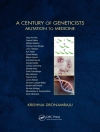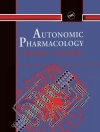This book provides insight into the various immunotherapeutic approaches for the treatment of lung cancers. The chapters of the book discuss the detailed mechanisms of checkpoint inhibitors, co-stimulatory molecules, drugs working in the immunosuppressive environment, and various vaccines for lung cancer. A chapter of the book explores the recent applications of the oncolytic virus in lung cancer treatment and discusses the potential and direction of oncolytic virus-based therapeutic vaccines. The chapter also elucidates the current understanding of the role of Toll-Like Receptors (TLRs) in tumor progression, and the recent progress in utilizing TLR agonists as potential therapeutic agents in lung cancer treatment. Towards the end, the book reviews the applications of stereotactic body radiation therapy (SBRT) and immunotherapy for the treatment of lung cancer. This book provides useful information to a range of audiences including clinical researchers working in the field of lung cancer, and undergraduate and postgraduate students from various disciplines such as pharmacy, microbiology, immunology, pharmacology, biotechnology, and health sciences.
विषयसूची
Chapter 1_An introduction to Lung cancer.- Chapter 2_Immunobiology of Lung cancer.- Chapter 3_Evolution of Lung cancer treatment from classical chemotherapy to advanced immunotherapy.- Chapter 4_Recent advances in the immunotherapy of Lung cancer.- Chapter 5_PD-1/PD-L1 inhibitors for the treatment of Lung cancer.- Chapter 6_CTLA-4 inhibitors for the treatment of Lung cancer.- Chapter 7_Adoptive T cell therapy for the treatment of Lung cancer.- Chapter 8_LAG-3 inhibitors for the treatment of Lung cancer.- Chapter 9_IDO and TGF-β inhibitors for the treatment of Lung cancer.- Chapter 10_OX40 and CD40 agonists for the treatment of Lung cancer.- Chapter 11_ICOS and GITR agonists for the treatment of Lung cancer.- Chapter 12_Vaccines and oncolytic virus for the treatment of Lung cancer.-Chapter 13_Targeting Toll-like receptors for the treatment of Lung cancer.- Chapter 14_Current and future perspectives of combining chemotherapy and stereotactic body radiation therapy with immunotherapy.- Chapter 15_Synergistic potential of PD-1/PD-L1 inhibitors and CTLA-4 inhibitors for the treatment of Lung cancer.- Chapter 16_Synergistic potential of antigen-specific vaccines and immunomodulatory agents for the treatment of Lung cancer.- Chapter 17_Important biomarkers for better evaluation of checkpoint inhibitors and another immunotherapy in Lung cancer.- Chapter 18_Insight on the clinical trials of immunotherapy for the treatment of Lung cancer.- Chapter 19_Future perspectives of the Cancer Immunotherapy for the treatment of Lung cancer.
लेखक के बारे में
Dr. Shvetank Bhatt is currently working as an Associate Professor in School of Health Sciences and Technology, Dr. Vishwanath Karad MIT World Peace University, Pune, Maharashtra, India. He has done M.Pharm in Pharmacology from Manipal College of Pharmaceutical Sciences, MAHE, Manipal, Karnataka and Ph.D. in Neuropharmacology from Birla Institute of Technology & Science (BITS) Pilani, Pilani Campus, Rajasthan. He has total 16 years of industrial and academic research experience. His area of specialization is CNS disorders, pain, inflammation and immunooncology. He is recipient of Prof. Duggirala Visweswaram & Prof. Sreemantalu Satyanarayana Award (Best Paper in Pharmacology-IJPER) in 2012 and 2014. He has published more than 90 papers in various journals of national and international repute. He has also published two books with Springer. He is life member of Association of Pharmaceutical Teachers of India (APTI) and Indian Pharmacological Society (IPS).
Professor Rajaraman Eri is the Associate Dean at the School of Science at RMIT University in Melbourne. Prof Eri is a veterinarian turned biomedical scientist who specializes in research investigations into colorectal cancer, functional foods (dietary fibre), clinical nutrition and gut health. Raj was awarded a master’s degree in Veterinary Medicine (TN Veterinary and Animal Sciences University, India) followed by his Ph D from the University of Queensland in molecular and cell biology in 2001. His subsequent postdoctoral training USA included research work mainly investigating both innate and adaptive immune responses and associated aspects of clinical translation. Between 2006 and 2010, Dr. Raj joined UQ-Mater Medical research Institute, Brisbane as a senior research officer where he was involved in ground-breaking work illustrating the role of endoplasmic reticulum stress in the pathogenesis of bowel diseases. In late 2010, he joined UTAS as an independent investigator developing a research laboratory dedicated to gut health, establishing an international reputation in this area over a decade. On the teaching side, he coordinates and teaches in the fields of biosciences, immunology, nutrition, and biochemistry. Dr. Raj has won multiple teaching awards including the Australian national citation for excellence in teaching in 2017.
Dr Goh Bey Hing is a full-time professor of biochemistry at Sunway University (Malaysia) and leads the Sunway Biofunctional Molecules Discovery Centre (SBMD). His research focuses on the functionality of natural products from herbs, microbes, and algae. With over 200 scientific articles, books, and patents, he has over 8000 citations and an H-index of 51. Goh provides professional advice to biotech, aquaculture, and wellness companies, and excels in education – receiving awards for teaching innovation. Goh’s contributions to research, education, and community, together with his dedication to biology, earned him recognition asa Top 10 Outstanding Young Malaysian in 2020 and placed him as the first Malaysian on the Advisory Board of the International Natural Product Sciences Taskforce.
Prof Terezinha de Jesus Andreoli Pinto is based as a full Professor at the School of Pharmaceutical Sciences, University of Sao Paulo. Professor Terezinha holds more than 40 years of sound experience in academia and researches on parenteral (formulation, analytical, microbiological, and performance methods) and medical devices. Professor Terezinha authored 180 articles in scientific journals, more than 12 book chapters and also holds two patents. Alongside her career, Professor Terezinha took on management roles in the University, such as being dean of School of Pharmacy for two mandates (2004-2008 and 2012-2016) and also being chair of Deliberative Board of FURP–a pharmaceutical firm that manufactures products from the WHO Essential Medicines list, run by Sao Paulo State Government. Strong scientific skills allied to leadership and management allowed her to establish agreements with internationally prestigious institutions including the University of Alberta, Lisbon, and Bath. Under her supervision, the CONFAR Laboratory was set up, the only Brazilian state university laboratory accredited by the National Institute of Metrology, Quality and Technology (INMETRO) (ISO/IEC 17025) and, authorized by the National Agency of Sanitary Surveillance (ANVISA) and the Ministry of Agriculture, Livestock, and Supplies (MAPA), and is considered a reference both in Brazil and overseas, in the analytical area. Professor Terezinha is also involved with standard-setting activities in agencies such as Brazilian Pharmacopeia (as coordinator of the Brazilian Pharmacopeia Drug Product and Medical Devices technical committee, and currently member of Biological and Biotechnological Products Committee), International Standard Organization (ISO) as Brazilian Association of Technical Norms (ABNT) representative and alsothe United States Pharmacopeia stakeholder with participation in convention current cycle.
Dr Keshav Raj Paudel is a recipient of IASLC fellowship (currently at mid-career researcher stage) at the Centre for Inflammation, Centenary Institute/UTS. He completed his Ph.D. (2017) from Mokpo National University, South Korea and started his first postdoctoral research at the University of Texas Health Science Centre at Houston Texas, USA-2018 on a NIH funded project. He is an emerging scientist with a good scientific track records demonstrated through his publications and successful grants. After joining UTS in 2019 for a second postdoctoral position, his research trajectory is continuously upraising in the field of translational research with a major focus on r^ $690K), including IASLC ECR fellowship-2019 (lead CI) and TSANZ grant-in-aid-2021 (lead CI). He has published more than 130 peer-reviewed scientific articles in leading journals such as the European Respiratory Journal, Trends in Food Science and Technology, Medical Journal of Australia, Medicinal Research Review, Cell reports, Cell death and disease, and Journal of Controlled Release, Critical Reviews in Food Science and Nutrition. He has also published 6 book chapters and one book as an editor. His scientific publications have been cited more than 2900 times, h-index 30, i-10 index 60 (google scholar). He is also a journal reviewer of more than 50 journals reviewing 145 papers so far and editor of more than 10 journals handling 115 papers so far.
Dr. Kamal Dua is a Senior Lecturer in the Discipline of Pharmacy at the Graduate School of Health, University of Technology Sydney (UTS), Australia. He has research experience of over 13 years in the field of drug delivery systems targeting inflammatory diseases. Dr. Dua is also a Node Leader of Drug Delivery Research in the Centre for Inflammation at Centenary Institute/UTS, where the targets identified from the research projects are pursued to develop novel formulations as the first step towards translation into clinics. Dr. Dua research in two complementary areas; drug delivery and immunology, specifically addressing how these disciplines can advance one another, helping the community to live longer and healthier. This is evidenced by his extensive publication record in reputed journals. Dr. Dua’s research interests focus on harnessing the pharmaceutical potential of modulating critical regulators such as Interleukins and micro RNAs and developing new and effective drug delivery formulations for the management of chronic airway diseases. He has published more than 100 research articles in peer-reviewed international journals and authored or co-authored four books. He is an active member of many national and international professional societies.












